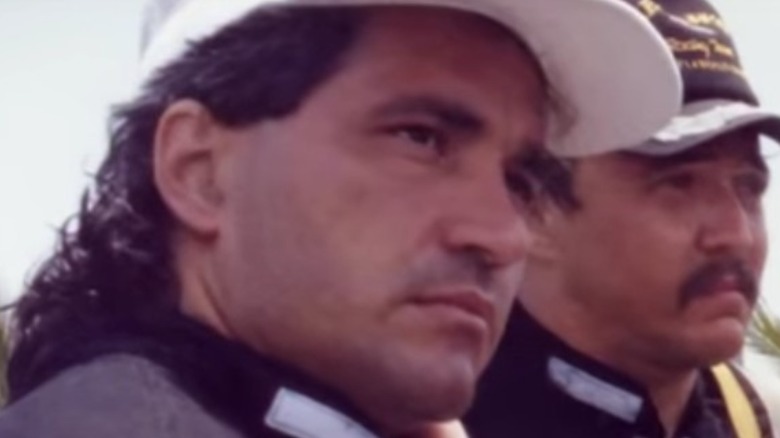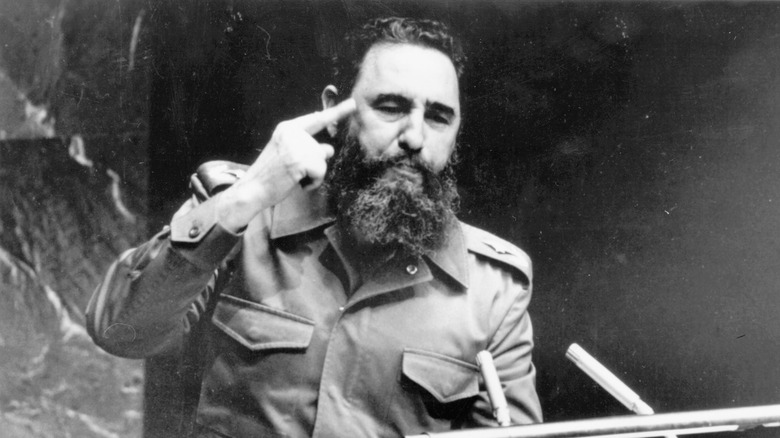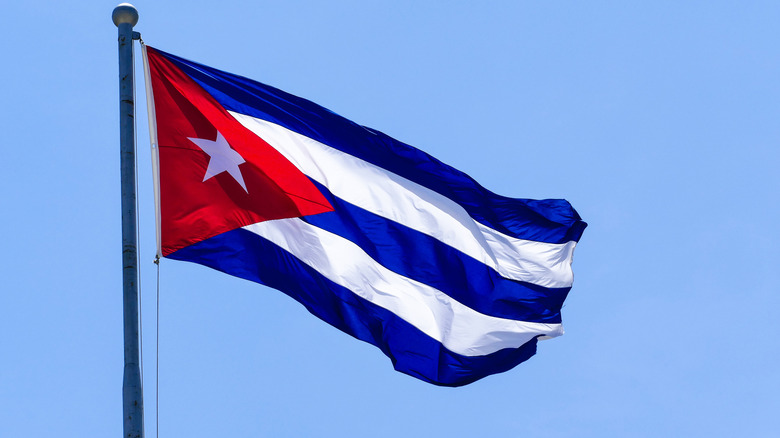The Truth About Cocaine Cowboy Willy Falcon's Involvement With The CIA
The '80s saw a monumental rise in cocaine use. Some might even say it was a staple of the decade, and the majority of it came through Miami, Florida, smuggled and sold amidst a modern wild west-type drug culture. Those who operated within that drug-filled, violent atmosphere were known as "cocaine cowboys," and one of the most famous among them was Willy Falcon.
The drug kingpin is being made even more famous these days with the release of Netflix's docuseries titled "Cocaine Cowboys: The Kings of Miami" (trailer on YouTube) which delves into the empire Guillermo "Willy" Falcon and his partner, Salvador "Sal" Magluta, built in the Florida city. Falcon wasn't one of those low-level drug dealers or silent hands who lived in the shadows. No, Falcon lived a lavish lifestyle complete with boats and fancy houses, throwing money around and within his community as if it were confetti. And, to him, it might as well have been since, according to New York Daily News, Willy and Sal were indicted in 1991 for moving over $2 billion worth of cocaine into the United States, making them worth millions. Once you've bought speedboats and cars and houses and who knows what else, where else can you spend your money? For Falcon, part of it went to the CIA.
An assassination attempt on Castro
Willy Falcon was born in Cuba but later immigrated the United States, and apparently, he wasn't a big fan of the leader of his homeland. According to the Miami Herald, as soon as Falcon and his partner became the number one smugglers for Colombian cartels, he began to funnel a portion of his massive earnings to an exiled Cuban paramilitary group whose aim was to take down Cuba's president, Fidel Castro, by any means necessary. This money went to weapons and supplies for a group of what can only be called terrorist. Weirdly enough, they were training in the Florida everglades. But how could that be?
It's since been discovered that the group that Falcon was funding had been involved in several assassination plots — failed plots, mind you — backed by the CIA in secret and meant to eliminate Castro. This started during the Cold War and continued well after it was publicly over. When Falcon was stuck in the clink for five years after a 1991 arrest for drug smuggling, for which he was acquitted in 1996, his support for this terrorist organization surely would've stopped. No. Turns out, Falcon was still collaborating with other Cuban exiles involved in the drug scene to keep operations going the whole time he was behind bars. All of this, of course, became a problem for the drug kingpin later on in his life.
Almost deported back to Cuba
Shortly after Willy Falcon was acquitted in 1996, he was charged with money laundering. The guy never got to leave prison. He may have gotten back into the open world if, as NBC notes, he hadn't been caught bribing a witness and a jury member. Falcon would see the light of day in 2017 when his sentence was over, but as CBS points out, he didn't get to stay in the United States.
Falcon was a legal permanent resident of the U.S., not a citizen. Since his charges were so vast, the country had a legal right to send him back to his place of birth. The only reason they hadn't up until his sentence was served was because there were no diplomatic relations established with Cuba, but that had changed since he was first incarcerated, according to the Miami Herald. Falcon going back home was a real possibility. Of course, he didn't want that to happen. Trying to kill a country's leader can get you into all sorts of deadly trouble, and the drug smuggler was sure he'd be dead meat if he was forced back home. Initially, his bid to stay was denied, and things were looking bad, but Falcon had a bit of luck on his side. Though he wouldn't be allowed to stay in the U.S., he was deported to the Dominic Republic where his life expectancy is likely much higher than it would've been on the Cuban Islands.


